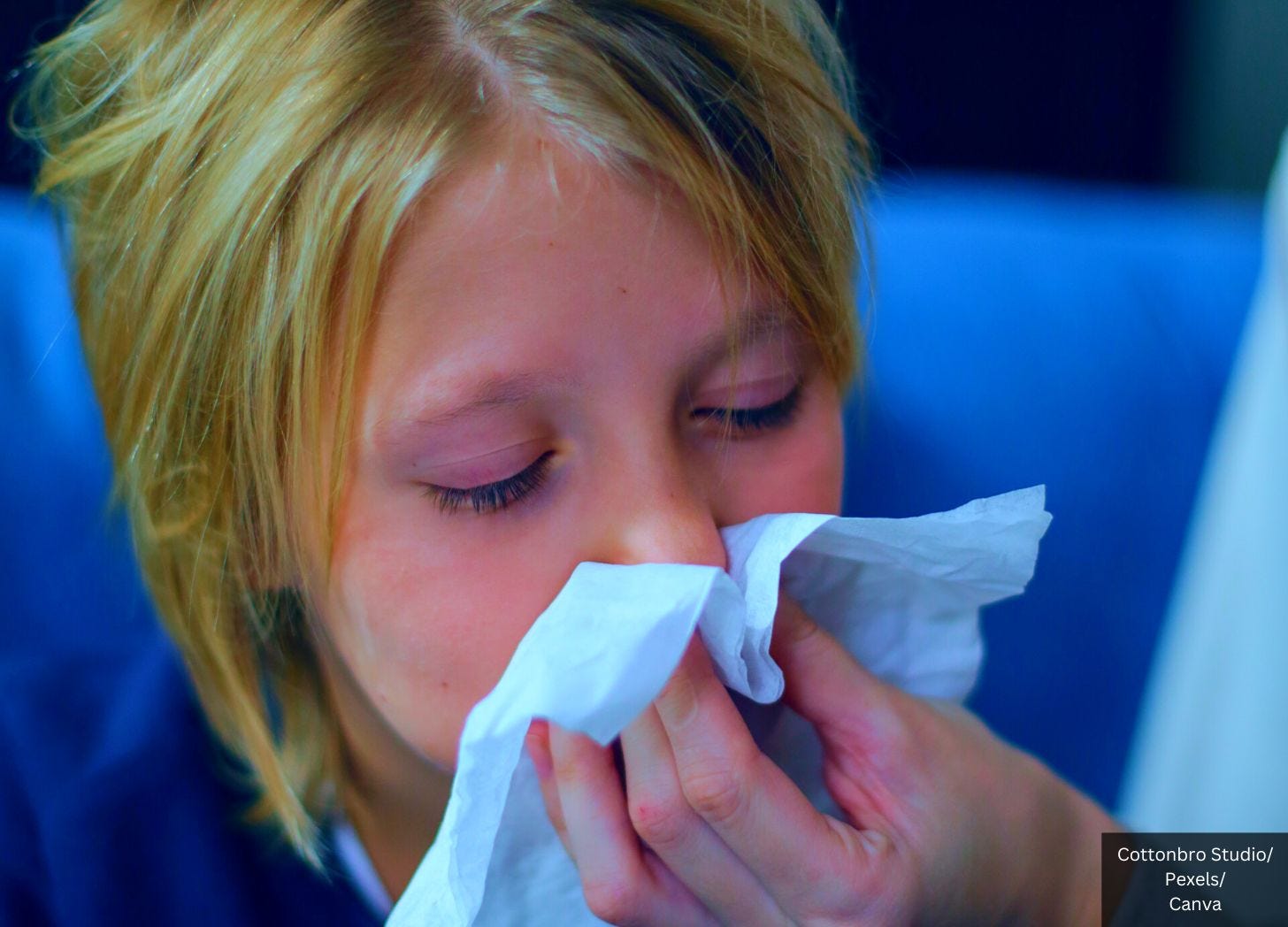COVID Vaccine Doesn't Decrease Contagious Period for Children: 'JAMA Pediatrics'
Unvaccinated children infectious for lower median duration than vaccinated children.
Researchers from Stanford University and the University of Southern California (USC) examined the duration of time both vaccinated and unvaccinated children infected with the coronavirus Omicron variant could spread the disease to others.
Follow Jon Fleetwood on Instagram @realjonfleetwood / Twitter @JonMFleetwood
Their results were published online Monday in JAMA Pediatrics.
The study authors were trying to figure out if vaccinated children spread COVID-19 for a shorter time than unvaccinated kids, and if so, by how much.
“We evaluated duration of infectivity and its association with vaccination using live viral recovery over a 10-day window after a positive COVID-19 test result in children in Los Angeles County,” the study reads.
Between April and September 2022, the authors recruited children aged seven to 18 who tested positive for COVID.
USC’s institutional review board approved the project, and written parental consent was obtained.
Of the 76 young participants, 52 (68.4%) were vaccinated, the rest were unvaccinated.
Most vaccinated children took Pfizer Inc.’s jab.
“We obtained pharyngeal swabs during 5 home visits over 10 days, with day 0 designated as the date of a positive test result. Samples were refrigerated and delivered within 24 hours of collection to a laboratory for variant assessment,” the authors explain.
Follow Jon Fleetwood on Instagram @realjonfleetwood / Twitter @JonMFleetwood
The study confirms that vaccinated children spread the virus for a longer duration of time than unvaccinated children.
Unvaccinated children had a lower median infectivity duration of “2-3” days compared to vaccinated children’s “3-3” days.
“The median duration of infectivity among vaccinated children was 3 (95% CI, 3-3) days and among unvaccinated children, 3 (95% CI, 2-3) days,” the study reads.
The authors emphasize their findings affirm earlier studies that found little difference in infectivity duration between the vaccinated and unvaccinated.
They reference a July 2022 study published in The New England Journal of Medicine (NEJM) that “did not find large differences in the median duration of viral shedding among participants who were unvaccinated, those who were vaccinated but not boosted, and those who were vaccinated and boosted.”
Both the JAMA and NEJM studies demonstrate that the COVID vaccine does not reduce the time an infected individual is contagious.
However, the JAMA study appears to indicate that vaccinated children are contagious for a longer duration than unvaccinated children.
The study raises questions not only about the coronavirus vaccine’s effectiveness, but also whether the vaccine gives the vaccinated what is called “negative efficacy,” when a vaccine is making things worse instead of better.
Follow Jon Fleetwood on Instagram @realjonfleetwood / Twitter @JonMFleetwood


